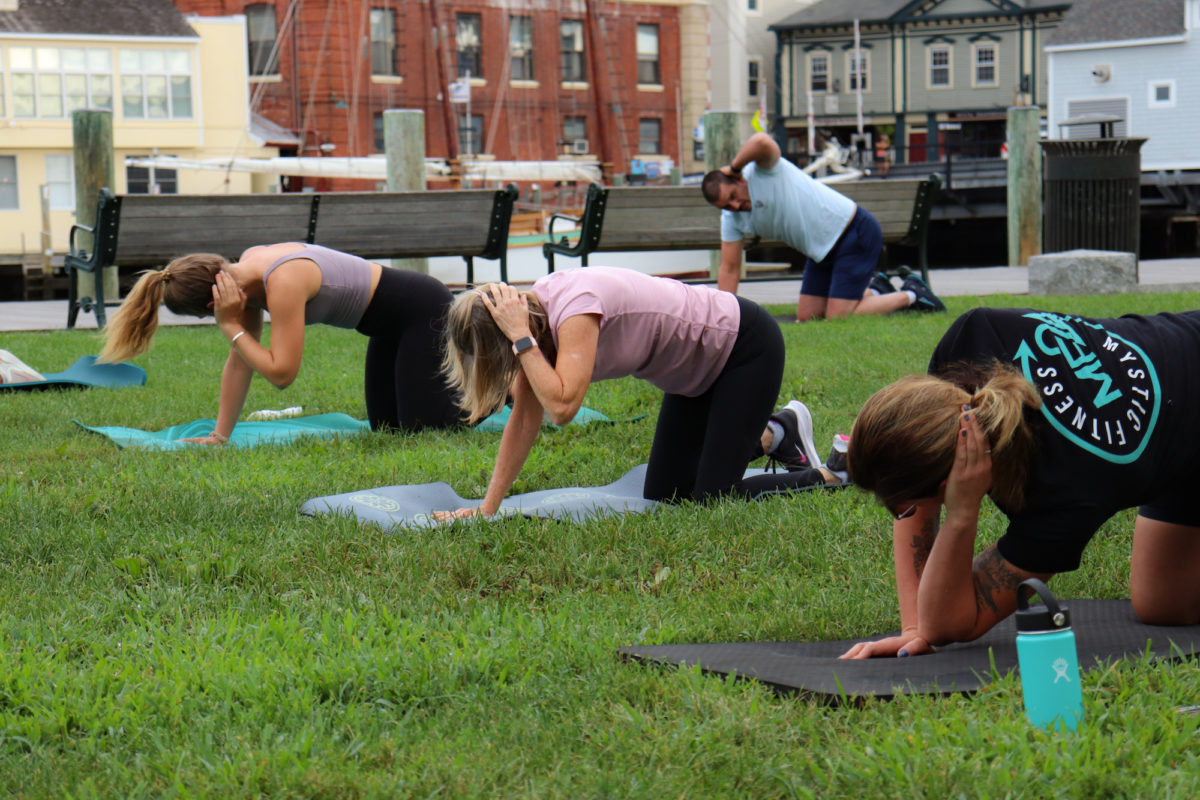Lifestyle Medicine As Preventative Treatment
Jeffrey H. Weinberger, M.D. of Internal Medicine
In practical terms, why should we study Lifestyle Medicine?
Extensive research shows that 80% of chronic illnesses, including heart disease, stroke and diabetes, is preventable with a healthy lifestyle, which I’ll describe in more detail below. And while we all justifiably fear cancer, adopting these healthy habits can reduce the incidence by 40%. Proponents also point to an overall improvement in quality of life.
Sounds amazing! Can you give us a structured way of approaching this?
Dr. Serna described the Six Pillars of Lifestyle Medicine, which when practiced together, defines a way of living that can make you feel healthier, happier and more energetic.
Pillar 1. Healthful Eating
A “whole food,” predominantly plant-based diet is recommended – the Mediterranean Diet is very close to this concept. Our brain have been trained to like processed, fast and convenience foods but it’s doing our bodies harm. If your diet is comprised primarily of these types of foods, try gradually shifting toward whole grains, vegetables, fruits, legumes, nuts and seeds. All of us can likely do better with our personal eating habits.
Pillar 2. Adequate sleep
Central to all the other lifestyle pillars, sleep impacts every aspect of daily living. It’s critical to a well-functioning immune system and our moods and productivity depend on getting enough sleep. Lack of it increases stress and anxiety, as many experienced during the pandemic. Much of our body’s homework in terms of metabolism and digestion is accomplished while we sleep. Turning off the tv and logging off electronic devices at night is not just important for our kids, but at all ages.
Pillar 3. Exercise
A daily routine helps maintain weight loss, lowers blood pressure and blood sugar, improves sleep quality, and enhances a feeling of well-being. Every day I hear patients say “I don’t want to take pills, doc” and this is a straightforward way to lessen dependence on prescription medicine. Diabetes medications, for instance, are not etched permanently in stone, but can easily be reduced with regular physical activity. Remember, this can be as simple as taking a daily stroll or clearing your head with short walking breaks during the workday. Other good resources are personal trainers and group exercise classes.
Pillar 4. Stress management
We all have issues going in our lives, but it’s important to know that the largest percentage of stress is not caused by actual events but simply by how we respond to them. If a spouse or other family member repeatedly behaves in a way that causes you stress, realize that you may not be able to change them but you can change the way you cope with it. In the words of that oft-heard song, you may just need to “let it go.” Another concrete example is that while we have no control over the pandemic, we can develop our own ways of being more resilient. When I have a challenging day in the office, I know that meeting colleagues later that night at a hospital conference seems to instantly lift my feelings.
Dr. Serna coined the term of having our own “stress toolbox” or coping skills that we can constantly improve and expand. I hope you include me as part of your toolbox. The tradition of the trusted family doctor includes being a good listener and I welcome you to lessen your stress by sharing your ups and downs with me.
Pillar 5. Eliminating unhealthy substances
No surprises here. We are all familiar with the need to stop, or hopefully never start, smoking, and drink alcohol only in moderation. Unfortunately, many have unhealthily coped with pandemic stress by increasing their use of drugs and alcohol.
Pillar 6. Relationships
We are social creatures with a strong need to connect with each other. Every connection needn’t be a best friend, but how we relate to spouses, family, friends and colleagues has a direct bearing on our health. Modern life can seem to favor constant access to the Internet, tv and computers in place of some of our best support systems – friendly, nurturing neighbors, churches and religious groups and collegial office environments.
So, Dr. Jeff, how do you feel a focus on lifestyle medicine will change your practice?
I should probably begin by taking this once iconic (and now just ironic) Camels cigarette ad off my wall!
Years ago, when I was visiting a patient surrounded by her family at Greenwich Hospital, she asked me for advice on how to recover quickly and I said “exercise more.” Her husband turned to me and said, “Jeff, that is your answer to everything!” and everyone burst out laughing. So I admit that I’ve always been an advocate of Pillar 3, but participating in this virtual conference on Lifestyle Medicine has inspired me to do much more. We should engage together in your wellness journey and focus daily attention on lifestyle and prevention. The annual physical is a great time to set goals, but let’s use the 12 months in between to check in with each other.
The focus on wellness should also include extra attention for patients who may be serving as primary caretaker for an ill family member. Finally, I’ll extend the lessons of the six pillars to include my staff and me – we’re patients too! We all need to maintain a healthy lifestyle.
Dr. Jeffrey Weinberger is an Internist located in Greenwich, CT.
